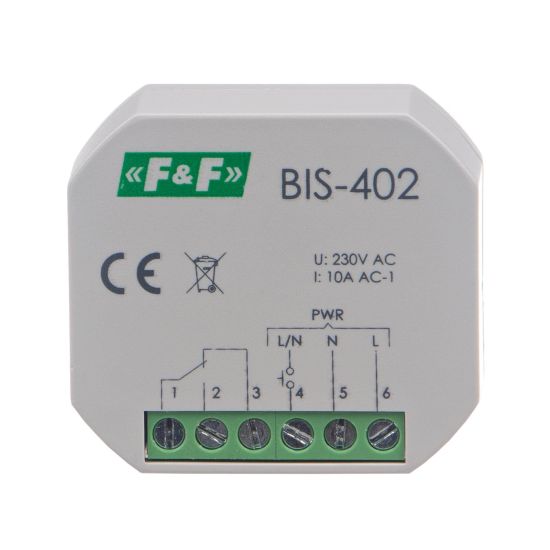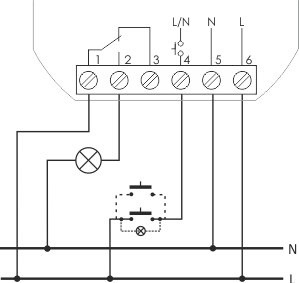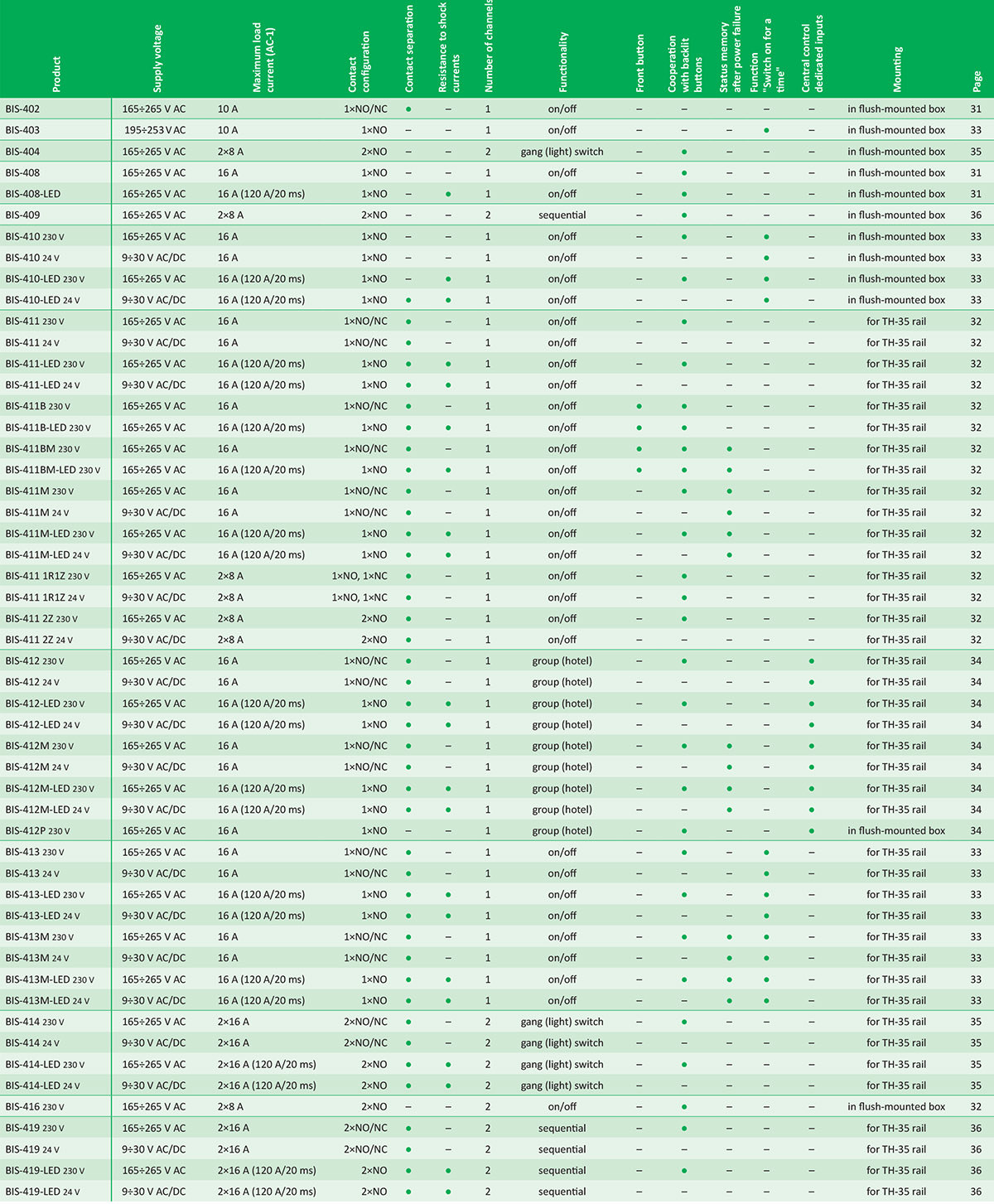





Functioning
The receiver is followed by current pulse triggered by pressing any (bell) connected to the relay. Turning off the receiver will be the next pulse. The relay does not have a "memory" of the contact position, ie. in the case of power failure and the subsequent return, contact the relay will be set in the off. This prevents the automatic switching of loads without supervision after a prolonged power failure.

Attention!
The BIS-402 not compatible with bell pushes equipped with fluorescent lamps. ![]()
Power table

The above data are indicative and will depend to a large extent on the design of a specific receiver (especially for LED bulbs, energy saving lamps, electronic transformers and pulse power supplies), switching frequency and working conditions.

